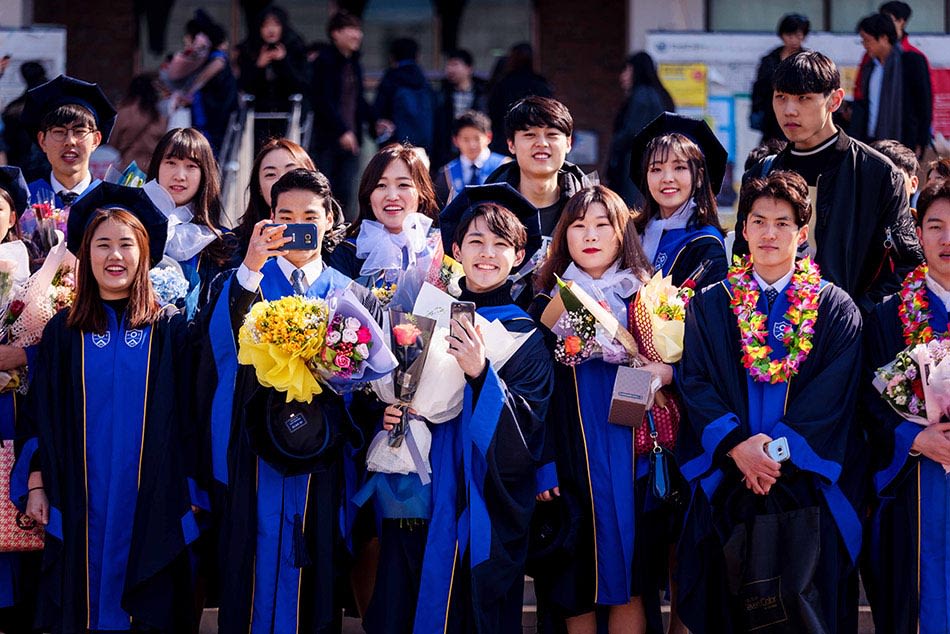South Korea has become a global hotspot for international students, and for good reasons. Whether you’re drawn to academic excellence, cultural richness, tech innovation, affordability, or vibrant student life, “Study in Korea” initiatives such as the Global Korea Scholarship (GKS) back it all up. Here’s an inspiring deep dive:
🎓 Prestigious, World-Class Education
Top-Ranked Institutions: South Korea boasts five QS Top 100 universities, including:
- Seoul National University (SNU)
- KAIST (Korea Advanced Institute of Science & Technology)
- Yonsei University
- Korea University
- POSTECH
Elite Academic Culture
The “SKY” universities—SNU, Korea University, Yonsei—are South Korea’s Ivy League and are highly competitive and respected worldwide.
Cutting-edge research & innovation
- KAIST offers up to 80% of courses in English.
- Full scholarships available for international students.
- Universities collaborate with tech leaders like Samsung, LG, Hyundai to provide hands-on research and practical experience.

📄Student Visa Categories in South Korea
Before moving to South Korea, you’ll need to apply for a student visa that matches your program duration and type:
- D-2 Visa – For full-time degree programs (Bachelor’s, Master’s, PhD) at Korean universities.
- D-4 Visa – For language training or non-degree programs, often used before transitioning into a degree course.
- D-10 Visa – For job-seeking after graduation. Valid up to 6 months and extendable.
- E-7 Visa – For skilled work post-graduation, especially if you’re hired by a Korean company.
🔑 Note: International students can also work part-time up to 20 hours/week for UG and up to 30 hours/week for PG during semesters and full-time during breaks.
💸 Affordable & Financial Supportive
Budget-Friendly Education
- Annual tuition: USD 3,000–10,000
- Monthly living costs: USD 400–1,200 (dorms, transport, food)
Generous scholarships – Global Korea Scholarship (GKS) includes:
- 100% tuition fee waiver
- Monthly living stipend (KRW 800,000–1,000,000)
- Airfare & Korean language training
- Many universities offer merit-based scholarships as well.
🐉 Rich Cultural Immersion
Modern‑traditional fusion
- Experience ancient palaces and bustling futuristic cities. Korean pop culture—K‑Pop, K‑Drama—is globally influential.
- Participate in festivals, food tours, historic temples, and UNESCO heritage sites, merging learning with lived experiences.
Learn the language
- Korean immersion programs and TOPIK prep courses are widely available, even within English-taught degrees.

🔧 Innovation, Tech & Job Market
Technology-driven environment
- World’s fastest internet
- Tech-forward campuses
- High research output
Work opportunities after graduation
- The Korean economy—the “Asian tiger”—offers robust job sectors and post-study work visas (D‑10, E‑7).
- High employment rates for SKY and KAIST grads, with strong placement in local and global markets.
🛡️ Safety & Student-Friendly Society
One of the world’s safest countries
South Korea ranks 1st among OECD countries in safety and lowest crime.
Comprehensive student support
- Universities offer visa help, counselling, buddy programs, and cultural events to ease adaptation.
- Active international student groups foster community and belonging.
🌍 A Vibrant, Global Campus Culture
- Student Life: Join cultural clubs, music and KPop events, sports fests, and more.
- Diverse Community: Meet students from all over the world and build lifelong friendships.
- Part-Time Work: Opportunities to work while studying help boost income and local experience.
🧭 Studying in South Korea delivers a powerful blend of academic excellence, innovation-driven experience, affordability, cultural richness, safety, and career prospects, positioning it as one of the world’s best education destinations. Whether you’re aiming for a top-tier university, a technology career, language mastery, or a dynamic international network, South Korea has it all.

🎯 Pro Tips for Getting Started
- Explore scholarships like GKS, university-specific, and program-level awards.
- Choose programs in English or those offering Korean immersion.
- Prepare for post-study opportunities—network early, participate in internships, and build Korean skills.
✨ Quick Tips to Get Started:
- Research programs taught in English and those with Korean language immersion.
- Apply for the GKS or university-level scholarships early.
- Plan your study pathways (D-2/D4).
- Improve Korean language skills to expand your job options after graduation.
Need Guidance with Applications or Scholarships?
If you’d like help with programs, scholarships, or applications, we’ve got your back—just say the word!

